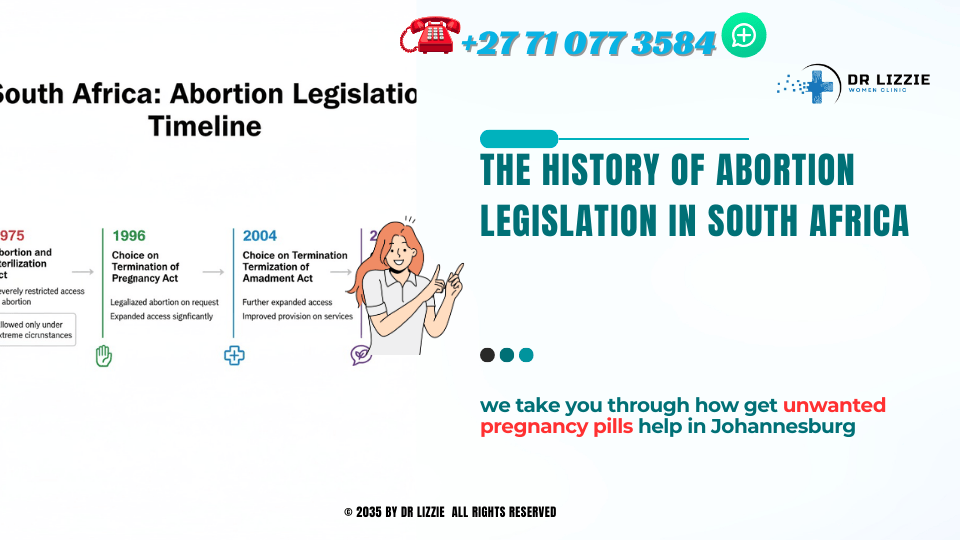Discover the best women's health clinics near Carlton Center and Ghandi Square to ensure you...
The History Of Abortion Legislation In South Africa

Explore the transformative journey of abortion laws in South Africa, from criminalization to legalization, and understand the impact on women's healthcare.
Early Abortion Laws: From Colonial Times to Apartheid
The history of abortion legislation in South Africa is deeply rooted in the country's colonial past. During the colonial era, abortion was heavily influenced by British law, which criminalized the practice. The British Offences Against the Person Act of 1861, which prohibited abortion, was enforced in the colonies, including South Africa. This law remained in effect well into the 20th century, creating a legal environment where abortion was highly restricted.
As South Africa transitioned into the apartheid era, the restrictive nature of abortion laws persisted. The Abortion and Sterilization Act of 1975 further cemented the criminalization of abortion. This act allowed abortion only under very limited circumstances, such as when the mother's life was in danger, in cases of rape or incest, or if there was a risk of severe fetal abnormality. Despite these narrow exceptions, the process of obtaining a legal abortion was fraught with bureaucratic hurdles, making it inaccessible for many women.
The Shift Towards Legalization: Key Movements and Milestones
The journey towards the legalization of abortion in South Africa gained momentum in the late 20th century, influenced by global shifts in women's rights and reproductive health. The women's liberation movement, both locally and internationally, played a critical role in advocating for the decriminalization of abortion. Activists highlighted the dangers of unsafe, illegal abortions and the need for women to have control over their reproductive choices.
A significant milestone in this journey was the establishment of the South African Law Commission in the early 1990s, which began reviewing the country's abortion laws. The commission's findings highlighted the need for reform, emphasizing the high rates of illegal abortions and the associated health risks. This period also saw the end of apartheid and the birth of a new democratic era, which paved the way for more progressive legislation.
The Choice on Termination of Pregnancy Act: A Landmark in Women's Rights
The Choice on Termination of Pregnancy Act, passed in 1996, marked a watershed moment in the history of abortion legislation in South Africa. This groundbreaking law allowed women to terminate a pregnancy upon request up to 12 weeks of gestation. For pregnancies between 13 and 20 weeks, abortions could be performed under certain conditions, such as when the pregnancy posed a risk to the woman's physical or mental health, in cases of severe fetal abnormalities, or if the pregnancy resulted from rape or incest.
The Act represented a significant shift towards recognizing women's autonomy and reproductive rights. It ensured that abortions could be performed safely and legally in designated healthcare facilities, significantly reducing the incidence of unsafe abortions. The law also mandated that minors seeking an abortion receive counseling to ensure informed decision-making, while still respecting their autonomy.
The Social and Health Impacts of Legalized Abortion
The legalization of abortion has had profound social and health impacts in South Africa. One of the most significant outcomes has been the reduction in maternal mortality rates associated with unsafe abortions. By providing safe and legal options, the Choice on Termination of Pregnancy Act has saved countless lives and improved the overall health and well-being of women.
Socially, the Act has contributed to greater gender equality by empowering women to make choices about their reproductive health without fear of legal repercussions. It has also helped to destigmatize abortion, fostering a more open and supportive environment for women seeking these services. However, challenges remain, including access to services in rural areas and ongoing societal stigma.
Current Challenges and Future Directions for Abortion Legislation
Despite the progress made, South Africa continues to face challenges in fully realizing the goals of the Choice on Termination of Pregnancy Act. Access to abortion services remains uneven, with rural and underserved areas often lacking adequate facilities and trained healthcare providers. Additionally, societal stigma and misinformation about abortion persist, creating barriers for women seeking these services.
Moving forward, it is crucial to address these challenges through comprehensive education, improved healthcare infrastructure, and continued advocacy for women's reproductive rights. Ensuring that all women, regardless of their location or socioeconomic status, have access to safe and legal abortion services is essential for advancing women's health and equality in South Africa.
.png?width=200&height=65&name=Untitled%20design%20(68).png)

.png?height=200&name=How%20to%20find%20the%20best%20women%E2%80%99s%20clinic%20in%20Johannesburg%20for%20safe%20and%20trusted%20healthcare%20(2).png)
